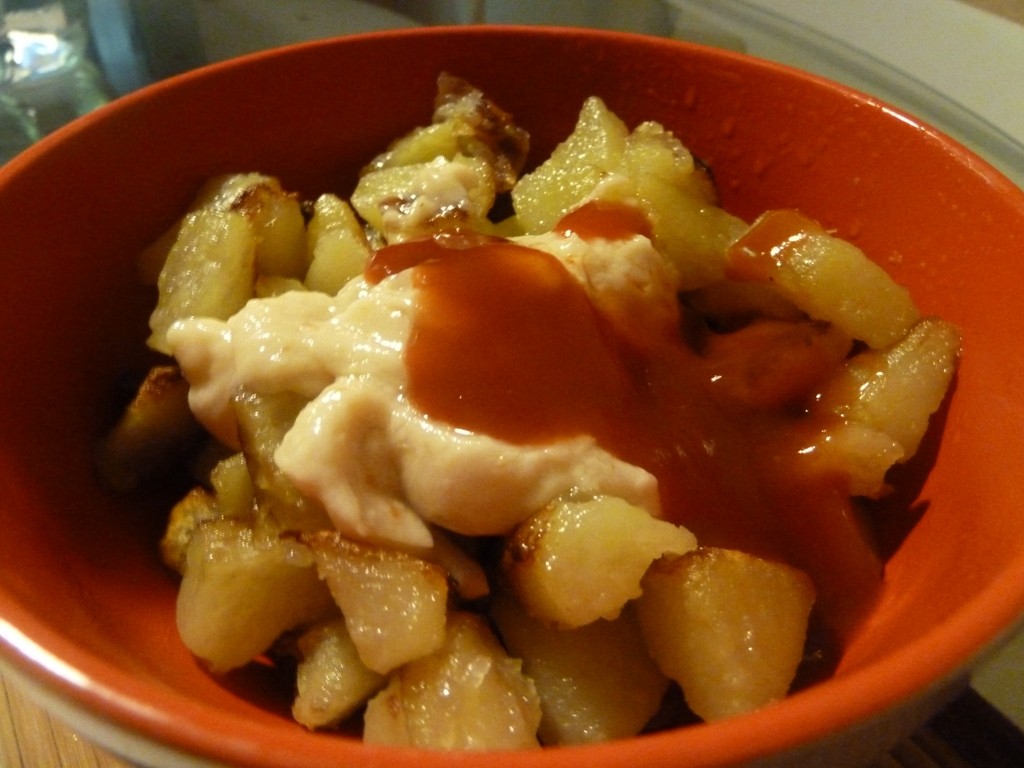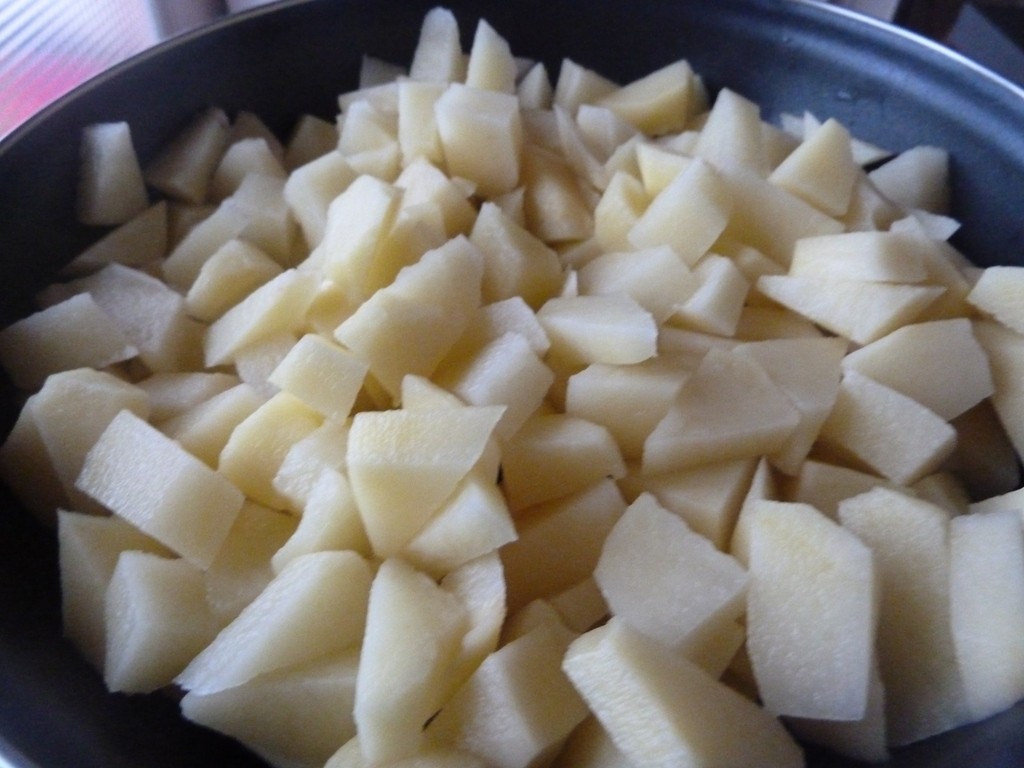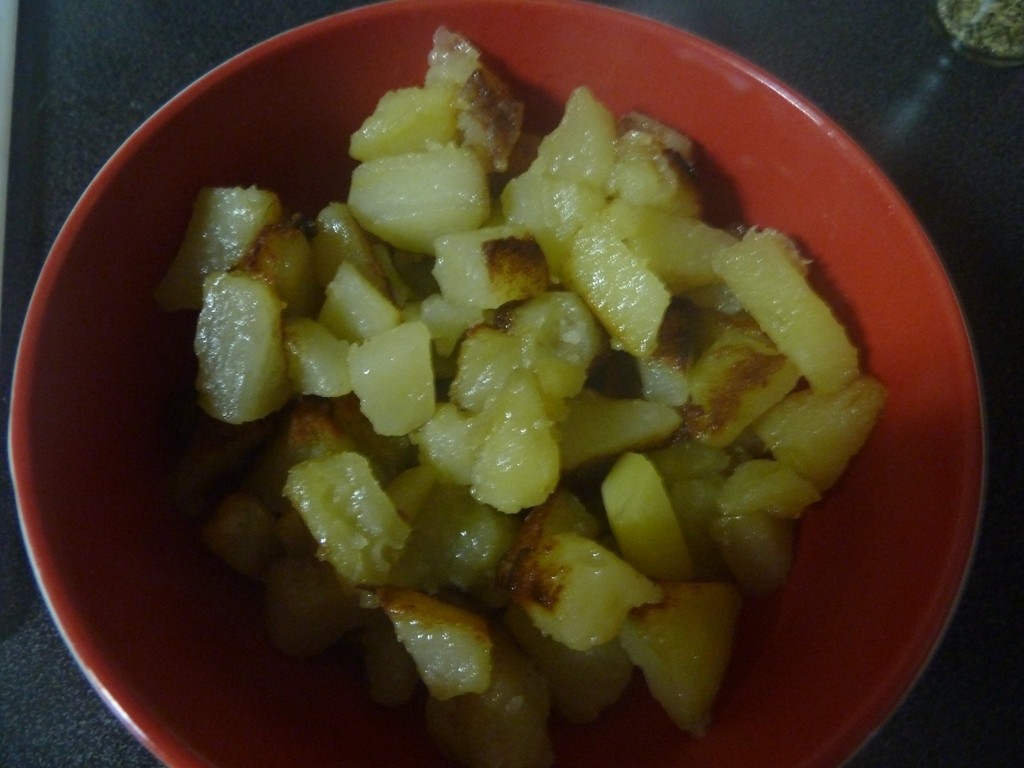Spanish Cuisine #3: Patatas Bravas
It is a classic of the vast world of tapas, probably one of the most appreciate entries in the Spanish cuisine. When I first went to Spain, I used to regard patatas bravas as a familiar and reassuring option among the various entries of the menu. Always worried about choosing something I did not know (as the rabo de toro) or worse, I did not understand. I usually opted for the patatas bravas. After all, what surprise may such a boring and plain aliment as potatoes have in store?

As a matter of fact, patatas bravas are not to everybody's taste right because they do have some surprises in store. It is precisely that adjective, bravas, which defines the unconventional character of this dish, their being extremely spicy due to the special sauce used as a topping. Not by chance, bravo also means salvaje (savage) in Spanish. Now that I have learnt how to cook patatas bravas (or at least I have tried to do so), it is abundantly clear the reason why that sauce is so spicy. However, it is time to get down to work, so... manos a la obra! (as Spanish people would say).
- Ingredients: 500 grams of potatoes.
- Ingredients for salsa brava: 2 ripe tomatoes, 1 red pepper, olive oil, salt, a spoonful of dried chilli pepper, a spoonful of paprika, 2 cloves of garlic.
- Ingredients for salsa allioli: 2 eggs, a clove of garlic, olive oil.
- Time for preparation: 45 minutes.
- Difficult: Medium.
- Cooking: 20 minutes (the vegetables for the sauce), 15 minutes (the potatoes).
Let us start with the instructions for the salsa brava. After preheating the oven at 200° C and washing the vegetables, add salt and olive oil to the pepper, the garlic and the tomatoes and put them in the oven. Having left them there for about 20 minutes, or anyway until they have softened, take out the vegetables and let them cool off. After that, peel the vegetables and put them in a mixer, together with chilli pepper and paprika. Having ground and blended everything in the mixer, the result should be (though it was not exactly so in my case) a uniform sauce, to which you can add salt if necessary.

As for the salsa allioli, the procedure will be quite similar to the preparation of salsa mayonnaise. After grinding the eggs and the garlic together in the mixer, stir the mixture and add gradually and carefully olive oil, without stopping stirring. Again, the result should be a dense sauce.
Finally, the easiest part of the recipe is probably preparing the potatoes. After peeling them and cutting them in slices, preferably quite big and of triangular shape, put the potatoes in a frying pan, together with some oil (this time you can use sunflower oil). Let them fry at first at an average temperature (about 120 °C), then finally raise the temperature to about 180 °C to have the potatoes browned a bit.

If you have succeeded in doing all what was in the recipe so far... well, congratulations, as I obviously did not at first try. Now you only have to dry up the potatoes with a piece of paper towel, add salt and serve them in a bowl, finally topping with salsa allioli and salsa brava. It is preferable to use a bowl than a common plate or dish because in this way it will be easier to preserve the sauce and spread it on the potatoes.
According to the tradition, this dish first appeared in Madrid at the beginning of the 1960s (though the exact authorship of the invention is still debated). Anyway, it is reported that people used to queue outside of the bars which first brought patatas bravas to the table, just to try this revolutionary recipe. Nowadays it has become a widespread traditional Spanish specialty, prepared in various ways with slight differences depending on the local custom.
Photo gallery
Content available in other languages
- Español: Cocina española #3: patatas bravas
Want to have your own Erasmus blog?
If you are experiencing living abroad, you're an avid traveller or want to promote the city where you live... create your own blog and share your adventures!
I want to create my Erasmus blog! →






Comments (2 comments)
un vero cuoco provetto... ma sai fare le pizze? :)
Jajaja, aspettavo il tuo commento! :) effettivamente no, quando vieni a insegnare che qui c'è bisogno!?